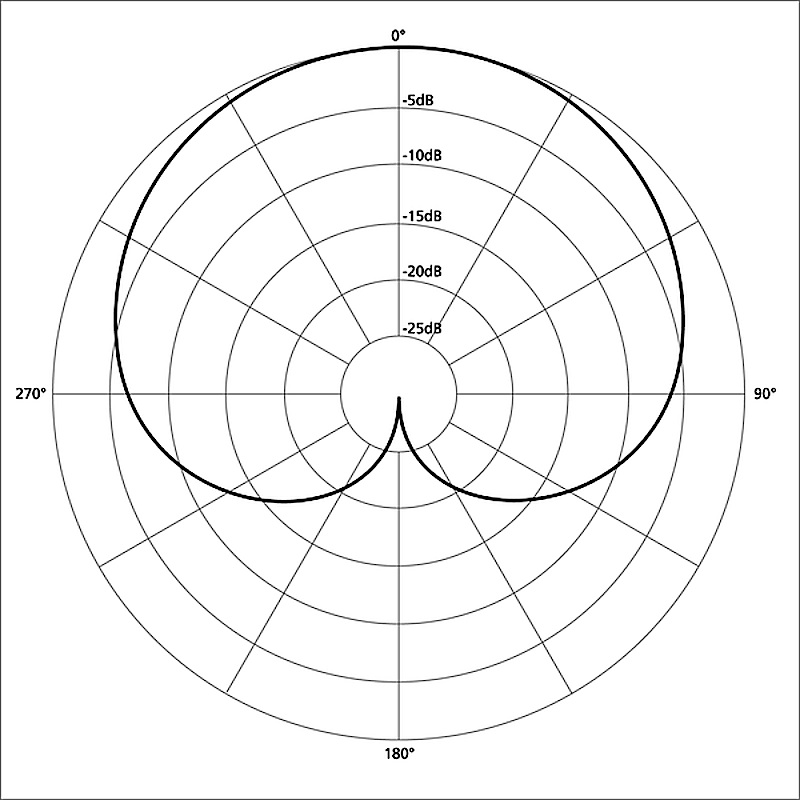 Cardioid microphones have a picking pattern that is shaped in the form of a heart. They pick up most of the sound from the front side, within the range of 120 degrees. The sides of a cardioid microphone are fairly less sensible, while sounds coming from the rear are completely inaudible. Those mics are most commonly used for studio recordings. Cardioids can provide a good sound quality, at the same time benefitting from the noise cancellation, which makes them an invaluable recording tool. The logic here is quite simple, the less noise you get while recording the better.
Cardioid microphones have a picking pattern that is shaped in the form of a heart. They pick up most of the sound from the front side, within the range of 120 degrees. The sides of a cardioid microphone are fairly less sensible, while sounds coming from the rear are completely inaudible. Those mics are most commonly used for studio recordings. Cardioids can provide a good sound quality, at the same time benefitting from the noise cancellation, which makes them an invaluable recording tool. The logic here is quite simple, the less noise you get while recording the better.
The noise is not something that can be easily turned on and off by a push of a button, this is why noise isolation takes a lot of care. Not only will you always pick up a degree of environmental noise, unless your studio is completely soundproof, but the sound reflected from walls also counts as noise. For a quality recording all this has to be eliminated and a cardioid mic perfectly serves this purpose. Another advantage of a cardioid mic is a complete sound cancellation from the back. Thus, if you will position your monitor speakers directly behind the mic, you’ll get no feedback. Music played through the speakers positioned in such way also will not be recorded.
Aside from studio use, cardioids are used for live and stage performance. Once again, in this case it helps to reduce the overall noise and avoid the feedback loops. Cardioids are also used for recording instruments and drums. However, as the cardioid’s picking radius is fairly large, it may still require some decent acoustics of the recording environment. When the environment is more aggressive or we want to isolate the sounds coming from a smaller degree, narrower polar patterns are required. Keep in mind a cardioid is more susceptible to wind, proximity effect and plosives.